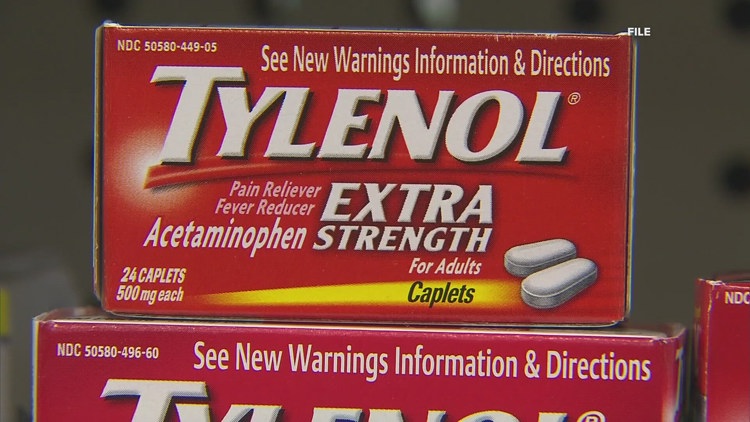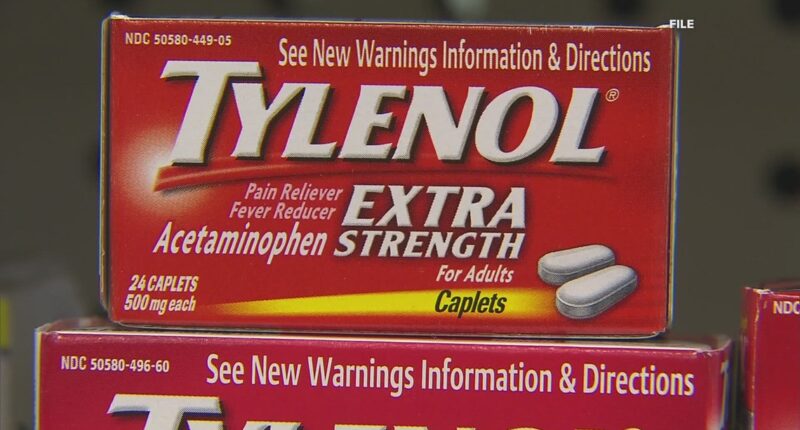Share this @internewscast.com

Doctors told us in this case, an association between the two things is not causation.
WASHINGTON, D.C., USA — On Monday, President Donald Trump addressed a press conference focusing on what he believes contributes to autism, a perspective at odds with medical experts.
Trump called the neurodevelopmental disorder a “horrible, horrible crisis” and unveiled his administration’s latest results in the research into it.
Trump pointed to studies linking acetaminophen — commonly sold under the brand name Tylenol — to autism diagnoses when taken during pregnancy.
He urged expectant mothers to avoid the drug unless absolutely necessary.
“Using Tylenol during pregnancy is not advisable,” Trump stated. “Ideally, pregnant women should avoid it, and children should not receive vaccines in large doses but should have them spaced out.”
Autism is a multifactorial condition influenced by genetics and environment, his administration noted.
Trump mentioned that autism rates have increased by more than 400% since 2000, presenting statistics that indicate 1 in 31 children across the country — and 1 in 12 boys in California — now have an autism diagnosis. He labeled this trend as “one of the most significant public health emergencies in history.”
Beyond his remarks on Tylenol, Trump reiterated claims about vaccines that have been thoroughly debunked. He proposed that the MMR vaccine be administered in separate doses, advocated for the removal of aluminum and mercury from vaccines, and questioned the need for newborns to be given a Hepatitis B shot.
Several guest speakers, including Health Secretary Robert F. Kennedy Jr., Dr. Mehmet Oz, and parents of autistic children, supported Trump’s call for further research. Kennedy expressed that his office would seek to conduct studies that should have been undertaken “25 years ago.”
Medical experts say the science is far less certain than the Trump administration suggested.
Dr. Payal Kohli, a cardiologist and medical contributor for First Coast News, emphasized that while there is an observed link between acetaminophen and autism, it does not establish causation.
“Tylenol is still one of the safest options we have for pregnant women when it comes to pain or fever,” Kohli said. “We have to be careful not to throw the baby out with the bathwater.”
She added that fever and pain themselves can pose risks to the baby if untreated. The American College of Obstetricians and Gynecologists and the American Academy of Pediatrics continue to recommend acetaminophen in pregnancy and childhood when used at the lowest dose for the shortest duration.
Experts say the rise in autism diagnoses is more complex than a single cause — with expanded diagnostic criteria, better screening, and parental age all playing roles.
Kohli’s advice: “Limit drugs, limit doses, limit durations — but don’t be afraid of Tylenol if it’s necessary. Talk to your doctor about what’s best for you.”

















